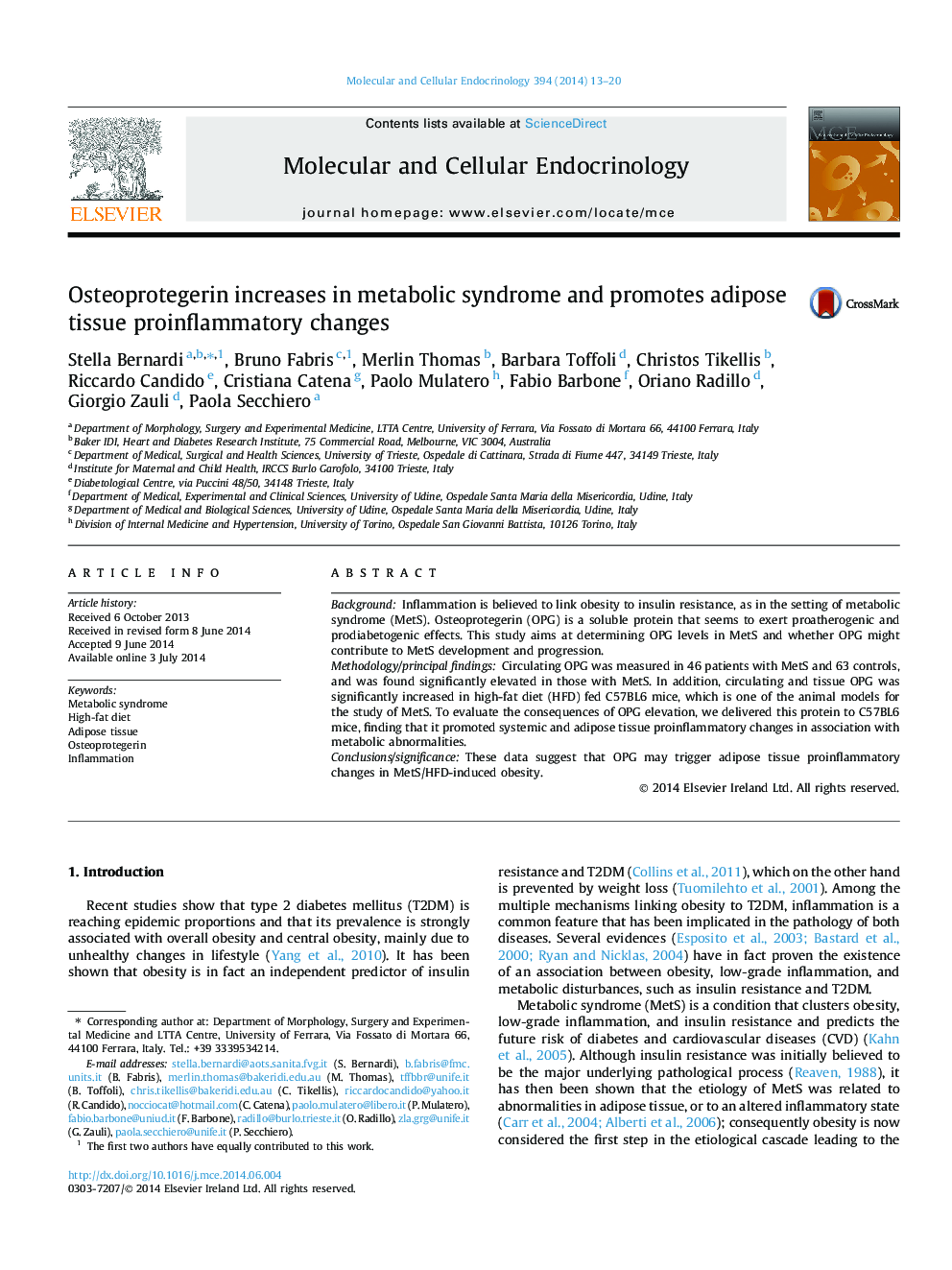| کد مقاله | کد نشریه | سال انتشار | مقاله انگلیسی | نسخه تمام متن |
|---|---|---|---|---|
| 2195927 | 1550884 | 2014 | 8 صفحه PDF | دانلود رایگان |
• OPG is significantly associated with metabolic syndrome in humans.
• OPG increases in HFD fed mice, which are a model of metabolic syndrome.
• OPG delivery leads to hyperglycemia and to an increase in proinflammatory cytokines.
• OPG delivery leads to macrophage accumulation in the adipose tissue.
BackgroundInflammation is believed to link obesity to insulin resistance, as in the setting of metabolic syndrome (MetS). Osteoprotegerin (OPG) is a soluble protein that seems to exert proatherogenic and prodiabetogenic effects. This study aims at determining OPG levels in MetS and whether OPG might contribute to MetS development and progression.Methodology/principal findingsCirculating OPG was measured in 46 patients with MetS and 63 controls, and was found significantly elevated in those with MetS. In addition, circulating and tissue OPG was significantly increased in high-fat diet (HFD) fed C57BL6 mice, which is one of the animal models for the study of MetS. To evaluate the consequences of OPG elevation, we delivered this protein to C57BL6 mice, finding that it promoted systemic and adipose tissue proinflammatory changes in association with metabolic abnormalities.Conclusions/significanceThese data suggest that OPG may trigger adipose tissue proinflammatory changes in MetS/HFD-induced obesity.
Journal: Molecular and Cellular Endocrinology - Volume 394, Issues 1–2, 25 August 2014, Pages 13–20
